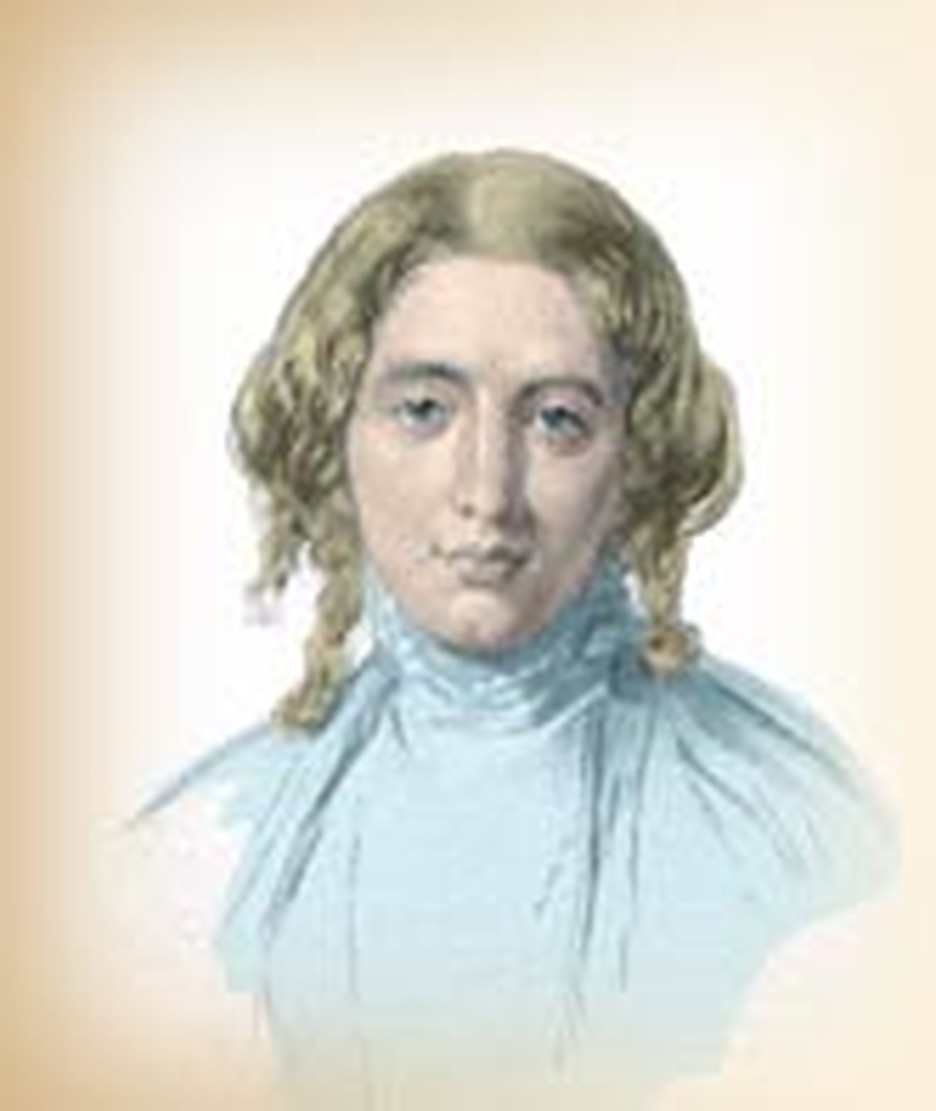
Now, Hattie, if I could use my pen as you can, I would write something that would make this whole nation feet what an accursed thing slavery is." Harriet read the letter from her sister, Isabella, and rose from her chair.
"I will write something. I will if I live," she vowed.
An Outrageous Act
Earlier that year, 1850, the Fugitive Slave Act was enacted in the United States. It ordered free citizens to help arrest and return runaway slaves to the south. Anyone who gave food or shelter to an escaping slave was subject to a $1,000 fine.
Under this act, fear reigned in white and black alike, and terrible outrages occurred. A black waiter named Henry Long was violently seized at the Pacific Hotel in New York. He found that he was claimed by John T. Smith of Richmond. Despite the fact that he had worked at the hotel long before his alleged date of his escape, he was sent south. "Is it possible that ... in all this nation of freemen there is not one deliverer brave enough and strong enough to rescue him?" raged Harriet.
Not just Isabella Was Asking
Isabella wasn't the only one asking Harriet to write. In Harriet's pocket was $100 and a note from Gamaliel Bailey, pleading with her for an antislavery story for National Era magazine. Bailey had already printed several of Harriet's antislavery articles. Earlier that year, she had written "The Freeman's Dream" for him. In it, she pictured a farmer judged by Christ for refusing bread to a runaway because of the Fugitive Slave Act. Jesus says to him, "Depart from me, ye accursed, for I was an hungered, and ye gave me no meat."
Uncle Tom's Cabin
"I will write," Harriet promised But autumn of 1850 gave way to winter. The year changed and she made no start on the story. Her mind was blank. Night after night she sat in front of her fire, but no satisfactory idea came until one cold Sunday morning in February, as she took communion, a vision formed in her mind. She saw an old slave undergoing a brutal beating but forgiving his tormentors as he prayed for them. Harriet accepted this as a vision directly from the Lord, a miracle!
She hurried home from church and wrote down a few scenes. As soon as she was done, she summoned her hungry children--dinner was suspended while she wrote-and read aloud what she had written. "Oh, Mama," sobbed one. "Slavery is the most cruel thing in the world!"
Ideas now whirled through Harriet's mind like snowflakes in a blizzard. She would need a full novel to tell the story. Bailey could serialize it, she suggested. Thus Uncle Tom's Cabin was printed in installments between 1851 and 1852.
"Wished it Had Been a Boy"
Harriet was born in Litchfield, Connecticut, on June 14, 1811, the seventh child of the renowned preacher Lyman Beecher. "Wished it had been a boy," he remarked. Although he doted on his daughters, he would have preferred Harriet to be another son who could follow him into the pulpit.
Oddly enough, Harriet was not the first in the family given her name. The fifth Beecher child had also been named Harriet, but died of whooping cough weeks after birth.
Harriet was just four years old when her shy, blushing mother died. Lyman was devastated. He described himself as like a child shut out in the dark. Harriet never forgot those words. The responsibilities of the household fell upon fifteen year old Catherine, the oldest of the Beecher daughters. From then on, Harriet turned to Catherine as to a mother in times of trouble, and the two exchanged letters all their lives.
By age six, Harriet was reading adult books, but hated writing. That soon changed. One of the greatest triumphs of her life came when she was twelve. She saw her father's face brighten when an essay on immortality was read anonymously. How Lyman beamed when it won first prize and he learned that it was his own daughter's. She treasured that moment of approval more than the success of any of her later stories.
Sermons in Choctaw?
In spite of her aptitude for reading, Harriet found it hard to understand her father's sermons. They might as well have been written in Choctaw for all the good she got from them. Its Calvinist God seemed unfair to her. But one day when she was fourteen "a certain pathetic earnestness in his voice" caused her to listen to the sermon more closely than usual. She began to cry. As they came home from church, she told her father that she had given herself wholeheartedly to Christ.
Dithers and Dabbles
Harriet married Bible scholar Calvin Stowe. He proved indecisive, constantly changing where he lived and taught. Harriet told him he lacked Christian fervor and wrote him, "If you had studied Christ with half the energy that you have studied Luther ... then would He be formed in you ......"
After one of their children died, Harriet and Calvin dabbled with spiritualism for solace, but Harriet repented of the practice and reminded her husband that it was unbiblical. Calvin could not be persuaded to give it up.
Little Lady, Big War
Meanwhile, John P. Jewett of Boston bought the book rights to Uncle Tom's Cabin. The week after Harriet signed the contract, the novel was in stores. Overnight, it became a bestseller. In its first year, 120 editions were printed. Harriet had earned $300 for the serial version; her first royalty check for the book was $ 10,000, a princely sum for the day. No American novel up to that time had sold like it--350,000 copies in twelve months. Within two years it was translated into seventeen languages, including Siamese.
Harriet thought that she had written a conciliatory book. Most of her slave-owners were shown as kindly people trapped within a system they had not created. In her eyes, radical abolitionists, wishing to use any means whatever to rid the nation of the curse of slavery, were more detestable than slave owners. But contrary to Harriet's expectations, the book heightened the anger of the South, who called it lies, and inflamed the and-slavery emotions of the North. Abraham Lincoln believed it triggered the Civil War. When he met Harriet during the war he remarked, "So this is the little lady who made this big war!"
America's Greatest Novel?
Although Harriet wrote many other books and stories, Uncle Tom's Cabin was her best. Harriet tried to show African-Americans as fully human, men and women in the image of Christ. But the book had its faults. She could be patronizing as when she wrote, "in order to appreciate the sufferings of the Negroes sold south, it must be remembered that all the instinctive affections of that race are particularly strong. Their local attachments are very abiding. They are not naturally daring and enterprising, but home-loving and affectionate." Anger at such stereotypes has led some African-Americans to use the name "Uncle Tom" in scorn for any African-American who accepts conditions as they are.
Some of her descriptions, such as that of Augustine St. Clare, run on too long. Irritating to a modem reader is Harriet's tendency to stop and talk directly to him or her. "And oh! Mother that reads this, has there never been in your house a drawer, or a closet, the opening of which has been to you like the opening again of a little grave? Ah! happy mother that you are, if it has not been so."
But the "fault" that some readers secretly find most irritating is Harriet's frequent introduction of faith into her pages, words like, "Depend upon it, God will bring you into judgment for this."
Today Uncle Tom is acknowledged as an outstanding work of American fiction, perhaps the nation's greatest book, especially notable for its vivid characters. Uncle Tom, Simon Legree, Eva, and Topsy are unforgettable. Eliza, crossing the Ohio river by leaping from chunk to chunk of ice, is an indelible image based on a true story. There are wonderful flashes of wit as when property "gets into an improper state of mind."
Whatever critics say, Harriet wielded her pen as an instrument for justice. Her book draws a powerful emotional response from the reader.
Abolitionist Editor Is Slain
When Harriet took up her pen against slavery, she was following in the footsteps of other abolitionists. She was 26 years old when Rev. Elijah P. Lovejoy was "martyred." Born in Maine in 1802, he founded the Observer, a religious paper, in St. Louis, Missouri, after completing his education at Princeton.
He wrote quietly against slavery until a lynching, in which a black man was burned alive. Then his editorials roared with such wrath that his foes forced him to move to Illinois. Three times his presses were destroyed by pro-slavery mobs.
On November 7, 1837, a mob attacked his latest press. Gun in hand, Lovejoy warned the rioters off. One rioter was shot. Lovejoy himself was killed. The incident fueled Northern rage.
Clearing Lady Byron
Harriet wrote in behalf of her dead friend, Lady Byron, who was criticized for abandoning her poet-husband, Lord Byron.
Harriet's exposure of Byron's villainy met with hostility from the public and destroyed her popularity.
End of the world predicted
In the 1840s, Rev. William Miller set a date for Christ's return. A spectacular meteor shower in 1833 had prepared many people to listen, believing that the "stars" had begun to fall just as Christ predicted they would.
Harriet was strongly affected by Miller's interpretation of prophecy. In 1842 she wrote to Calvin, "Now by the grace of God I am resolved to come home and five for God. It is time to prepare to die. The lamp has not long to bum... eternity is coming. Will you, dear husband, join with me in simplicity and earnestness to lead a new life...."
In 1843, Miller's date arrived, but Christ did not. A backup date also failed.








